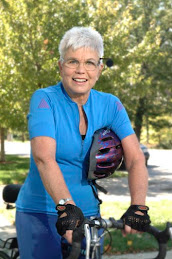Three years, ago, well-to-do friends of mine, “Nancy and Phil” went on a high-ticket cruise among the Greek islands. Theirs was a luxurious small ship, so the passengers soon became acquainted. Phil, who holds a top-level position in a Midwest corporation, discovered that his fellow passengers held similar or better positions in much bigger East Coast companies, with commensurate incomes.
“Phil fell into such a funk,” Nancy confided later. “He began belittling himself because he wasn’t ‘as important or as rich’as the others. By the time he regained some perspective, he had wasted half the cruise with his ridiculous comparisons.”
It’s all relative, isn’t it?
Before deciding you don’t have enough, consider:
o How many square feet are in your house or apartment? In some societies, two or more families share as little as 600 square feet.
o Do you wish you could lose five or ten pounds? Then apparently, you’re getting enough to eat. Globally, one out of every five human beings is malnourished.
o Do you and your spouse own two cars? It’s not universally possible, but ever since gas topped $4 a gallon, more and more people have discovered busses, bicycles and old-fashioned walking as a means of getting somewhere. Oh, and did I mention carpools?
o I’m a former smoker who remembers how hard it was to quit, so if you smoke, you have my sympathy. But did you know your habit costs your family $41 per pack? That’s according to the Center for Health, Policy, Law and Management at Duke University [Study at the Terry Sanford Institute of Public Policy reported in USA Today, Nov 26, 04 posted on line.] who added up a pack of cigarettes, plus taxes, insurance, medical care and lost earnings due to smoking-related disabilities over an adult lifetime.
This is not meant to guilt-trip any smokers because it is a powerful addiction. It just means that before we think we don’t have enough, we need to look clearly at how we spend our money now.
Tuesday, September 23, 2008
Wednesday, September 10, 2008
Where does a dollar go?
What would you do if you discovered, on the bottom edge of a dollar bill you got in change, this handwritten message: "Where does a dollar go? Send me a postcard. [Address] Have a great day!"
Would you answer? When I last talked to Midwest artist Dean Bracy, the man who sent out 10,000 of these dollar bills, more than 6,500 people had replied. And they sent more than postcards: Some sent travel brochures, maps, menus, bumper stickers, refrigerator magnets, baseball cards, even a pumpkin. People detailed their lives, politics and their towns…all to a stranger whom they’d never met.
Bracy's dollars turned up around the globe. They appeared at the scene of a crime, as a gift to a newborn, and in the garter of an exotic dancer. They were wagered by gamblers and given to charities. " [To read my complete story, as published in Readers Digest, go to the Articles link on my website, http://www.BarbaraBartocci.com]
Now pick up and hold a dollar bill. Where has this dollar been? Where will it go? You are holding what Joseph Campbell called “congealed energy.” We live in a universe made up of energy, and money is just one aspect.
In her excellent book, The Energy of Money, psychologist Maria Nemeth, PhD, says our relationship with money is really the hero’s journey in which we enter unknown territory, encounter fears, mysteries and mentors, and eventually—if we are willing—gain a sense of mastery.
What kind of emotional energy do you feel around money? A good way to find out is to write a money autobiography. Write for 10 minutes by hand or on your computer starting with this phrase: “I first learned about money when I was…”
What do you discover after writing for ten minutes?
Would you answer? When I last talked to Midwest artist Dean Bracy, the man who sent out 10,000 of these dollar bills, more than 6,500 people had replied. And they sent more than postcards: Some sent travel brochures, maps, menus, bumper stickers, refrigerator magnets, baseball cards, even a pumpkin. People detailed their lives, politics and their towns…all to a stranger whom they’d never met.
Bracy's dollars turned up around the globe. They appeared at the scene of a crime, as a gift to a newborn, and in the garter of an exotic dancer. They were wagered by gamblers and given to charities. " [To read my complete story, as published in Readers Digest, go to the Articles link on my website, http://www.BarbaraBartocci.com]
Now pick up and hold a dollar bill. Where has this dollar been? Where will it go? You are holding what Joseph Campbell called “congealed energy.” We live in a universe made up of energy, and money is just one aspect.
In her excellent book, The Energy of Money, psychologist Maria Nemeth, PhD, says our relationship with money is really the hero’s journey in which we enter unknown territory, encounter fears, mysteries and mentors, and eventually—if we are willing—gain a sense of mastery.
What kind of emotional energy do you feel around money? A good way to find out is to write a money autobiography. Write for 10 minutes by hand or on your computer starting with this phrase: “I first learned about money when I was…”
What do you discover after writing for ten minutes?
Subscribe to:
Posts (Atom)

